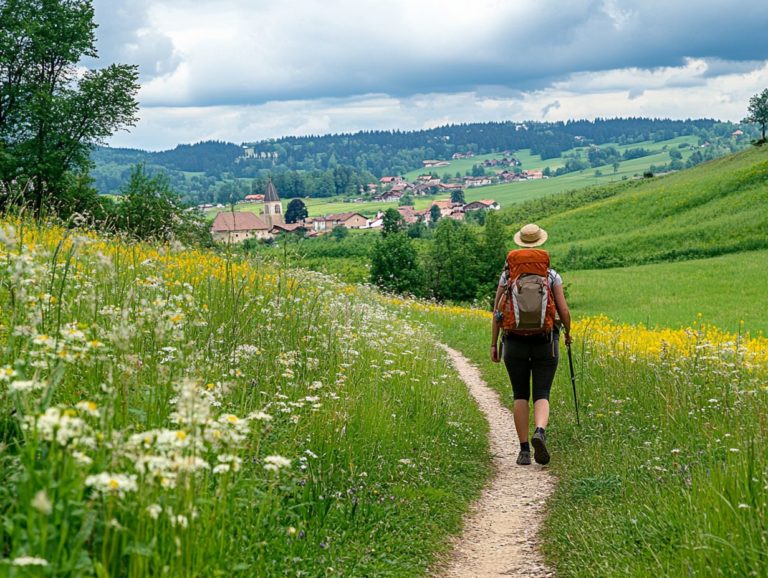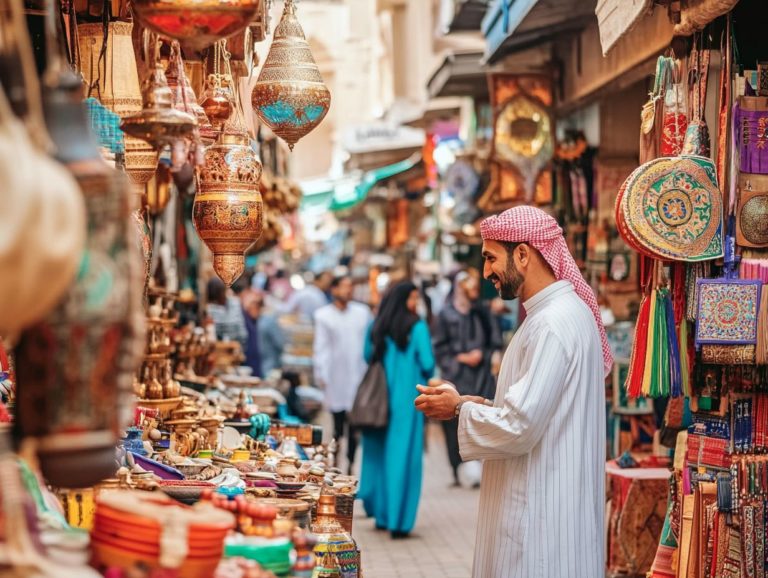Travel Etiquette: Respecting Local Customs
When traveling, grasping local customs is essential for crafting meaningful experiences and nurturing positive interactions.
By respecting cultural traditions, you enrich your journey and demonstrate genuine appreciation for the places and people you encounter.
Get ready to discover essential etiquette tips that will transform your travel experience! This guide provides vital etiquette tips tailored to various travel destinations. It emphasizes the significance of respectful communication both verbal and non-verbal. You ll also gain insights on adapting your behavior to harmonize with local customs.
Discover how to navigate the vibrant tapestry of global cultures with sensitivity and awareness.
Contents
- Key Takeaways:
- Understanding Local Customs
- Etiquette Tips for Different Cultures
- Communicating Respectfully
- Cultural Sensitivity and Awareness
- Adapting to Local Customs
- Frequently Asked Questions
- What does travel etiquette mean?
- Why is it important to respect local customs while traveling?
- What are some common local customs that travelers should be aware of?
- What should I do if I am unsure about a local custom?
- Is it okay to ask questions about local customs?
- What should I do if I accidentally offend someone while engaging with diverse cultures?
Key Takeaways:
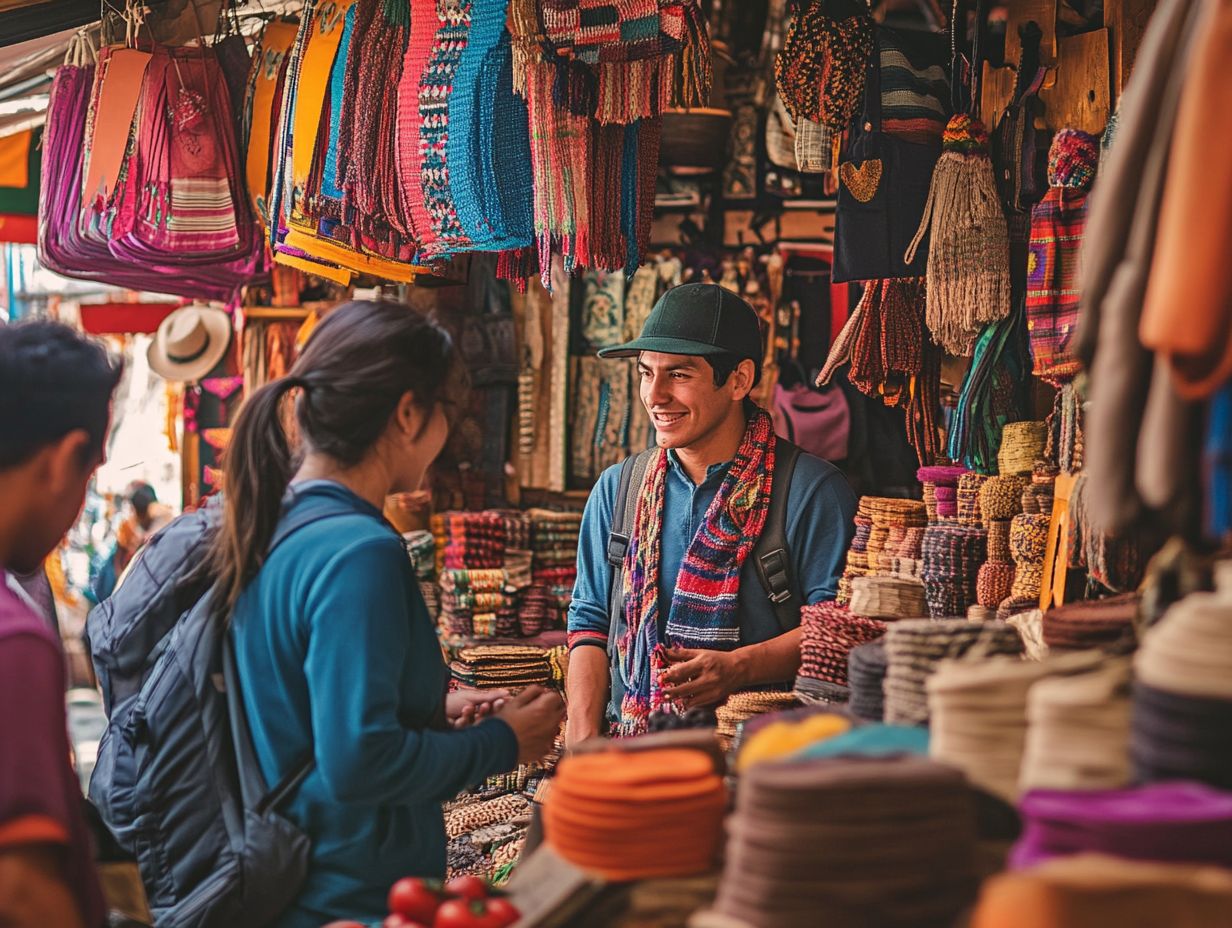
- Always research and understand local customs before traveling to a new destination to show respect and avoid offending others.
- Be aware of cultural differences and follow etiquette tips, like dress codes and table manners, when visiting popular travel destinations.
- Communicate respectfully by learning key phrases and non-verbal cues. Stay open-minded and adaptable to local customs to fully experience and appreciate a new culture.
Understanding Local Customs
Understanding local customs is essential for you as a mindful traveler seeking to immerse yourself in the rich tapestry of diverse cultures. By respecting these customs, you honor the traditions of the locals and build meaningful interactions that pave the way for vibrant cultural exchanges.
Respecting customs helps preserve heritage and positively impacts the local economy. Your tourism should enhance the community’s unique identity.
In destinations like Nepal, Kathmandu, or sacred sites such as Angkor Wat, engaging with local customs will deepen your travel experiences, offering invaluable cultural insights that enrich your journey.
Why it’s Important to Respect Customs
Respecting customs is crucial for ethical travel, as it builds meaningful connections between you and the locals, fostering a spirit of cultural sensitivity, which means being aware and respectful of different cultures.
When you take the time to learn and follow local customs, you enrich your experiences and lay the groundwork for mutual respect. For example, in Japan, understanding that bowing is preferred over shaking hands can establish trust and show appreciation for their traditions. Similarly, in countries like Morocco, dressing modestly isn t just about fitting in; it s a way to prevent misunderstandings and honor local norms.
By embracing these practices, you ll often find yourself welcomed more warmly, leading to richer interactions and a deeper understanding of your destination.
Etiquette Tips for Different Cultures
Etiquette can differ vastly from one culture to another, making it crucial for travelers like you to understand the dos and don’ts. Familiarizing yourself with these nuances ensures that your interactions with locals are respectful and enjoyable.
Dos and Don’ts for Popular Travel Destinations
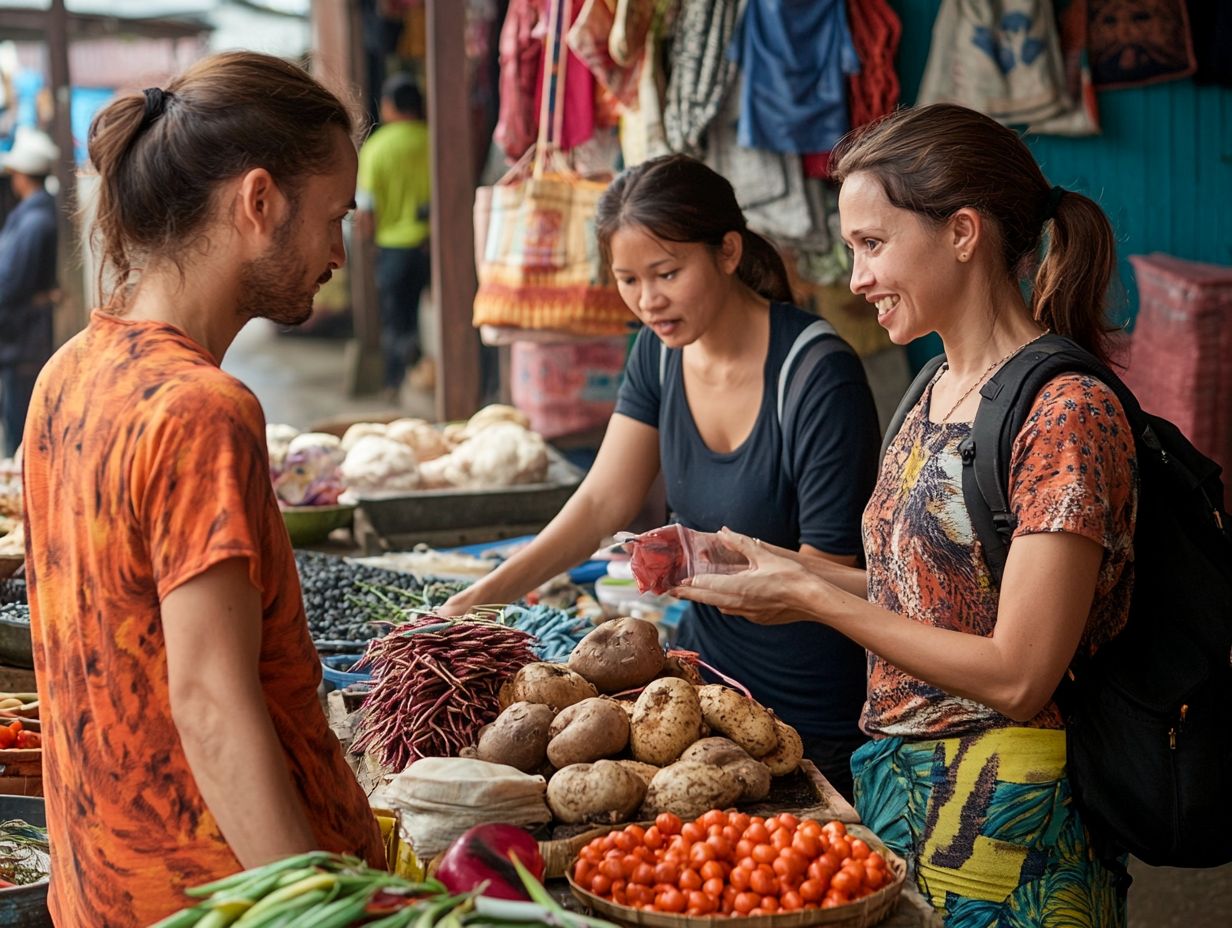
When you explore popular travel destinations, knowing the dos and don’ts can elevate your experience and help you build meaningful relationships with the locals.
It s crucial to grasp the cultural nuances unique to each location. For instance, at sacred sites like temples or churches, you are generally expected to dress modestly, covering your shoulders and knees. In some areas, public displays of affection may not be well-received.
Paying attention to the behavior and non-verbal cues of locals can offer invaluable insights. For instance, a gentle nod might signal agreement, whereas a lack of eye contact could suggest discomfort.
By adopting a respectful and open-minded approach, you enrich your journey and pave the way for genuine connections with the people you meet along the way.
Communicating Respectfully
Communicating with respect is essential in diverse cultures, where language barriers and varying social customs can lead to misunderstandings between tourists and locals.
Approaching interactions thoughtfully fosters a more harmonious environment and enriches your travel experience.
Language and Non-Verbal Communication
Language and non-verbal communication serve as powerful tools in crafting connections and showcasing cultural sensitivity during your travels.
Understanding how to articulate your thoughts verbally, along with recognizing the subtle gestures that can shift in meaning across borders, can significantly enhance your relationships with others. For instance, a thumbs-up might convey approval in one country, while in another, it could be considered offensive. Maintaining eye contact reflects confidence and attentiveness in some cultures, but in others, it might be interpreted as disrespectful.
By being mindful of these nuances, you not only sidestep potential misunderstandings, but also demonstrate respect for local customs. This awareness creates an environment where meaningful interactions can thrive, ultimately enriching your travel experience.
Cultural Sensitivity and Awareness
Cultural sensitivity and awareness are essential cornerstones of responsible tourism. They give you the power to navigate the rich tapestry of diverse cultures while fostering respectful interactions with locals.
Embracing these principles enhances your travel experience and contributes to a deeper understanding and appreciation of the places you visit.
Avoiding Offending Others
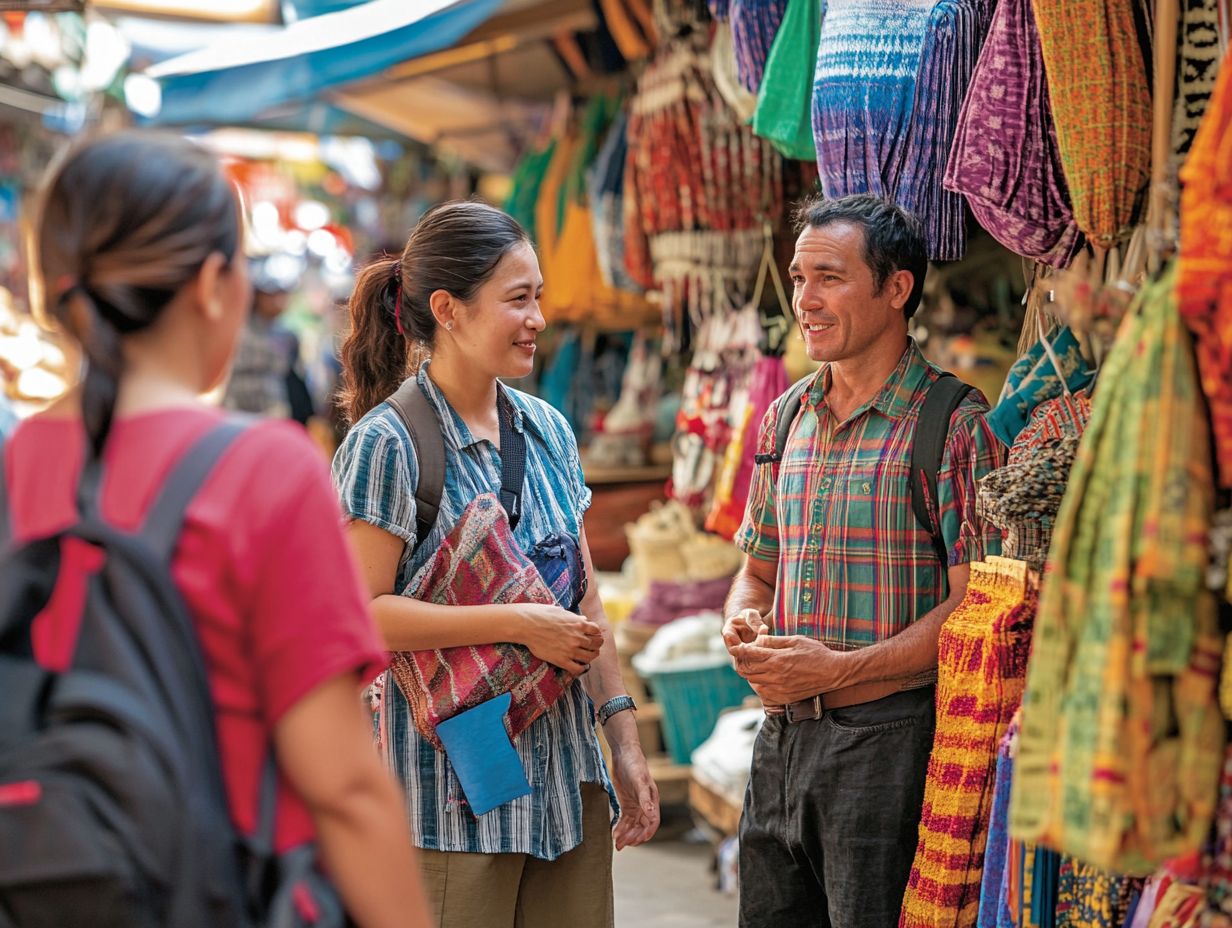
Avoiding actions that might offend others is essential for cultivating meaningful interactions and ensuring that your travel experiences are nothing short of positive.
Taking the time to understand and respect local traditions can significantly elevate your journey. For example, dressing appropriately when visiting sacred sites isn t just a polite recommendation; it s a heartfelt nod to the local culture and beliefs. Whether it s opting for modest attire in temples or removing your shoes before stepping into someone s home, these small gestures reflect a deep appreciation for the community’s customs.
Simple behaviors, like maintaining a quiet demeanor in religious spaces or being conscious of personal space, can work wonders in building rapport. By approaching your interactions with openness and reverence, you can forge genuine connections that enrich your adventures in remarkable ways.
Adapting to Local Customs
Adapting to local customs is an essential skill for you as a traveler, especially if you wish to enrich your experiences and leave a positive mark on the communities you visit.
Embracing the unique traditions and practices of each place not only deepens your understanding but also fosters genuine connections with the locals. It transforms your journey into a meaningful exchange, creating lasting memories and a positive impact on the places you explore.
Adjusting Behaviors and Attitudes
Adjusting your behaviors and attitudes is essential for showing respect for local customs and enhancing your cultural awareness while traveling. By being mindful of social norms, you can navigate different cultures with greater ease.
For instance, in Japan, bowing is not just a greeting; it s a sign of respect that you ll want to master. In many Middle Eastern countries, a handshake is the norm, but remember to use your right hand, as the left is considered unclean.
In some cultures, taking food with your left hand is frowned upon, so it s wise to be aware of such nuances. By bearing these cultural subtleties in mind, you ll be able to connect genuinely with locals, fostering a spirit of understanding.
Your willingness to learn from these experiences can lead to enriching interactions and truly memorable journeys.
Frequently Asked Questions
What does travel etiquette mean?
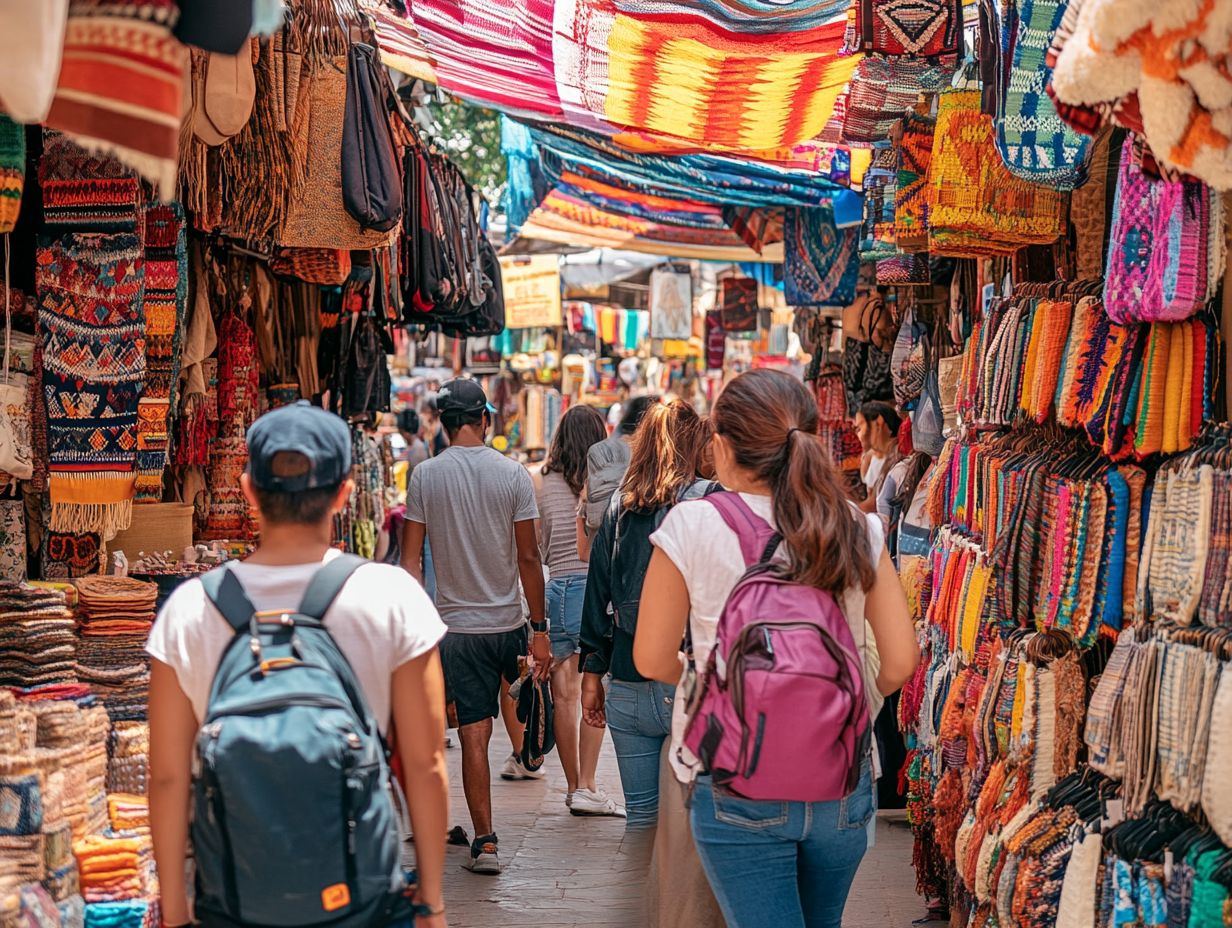
Travel etiquette refers to the behavior and manners that are expected in different cultures and countries while traveling. This includes respecting local customs and traditions.
Why is it important to respect local customs while traveling?
Respecting local customs is important because it shows that you are appreciative and understanding of the culture and traditions of the place you are visiting. It also helps to avoid any unintentional offense or misunderstandings.
What are some common local customs that travelers should be aware of?
Common local customs include greetings, dress codes, and table manners. Take the time to learn about these practices before your trip.
What should I do if I am unsure about a local custom?
Observe the locals and follow their lead. If you’re still unsure, ask a tour guide or a trusted local friend for help.
Is it okay to ask questions about local customs?
Yes, feel free to ask questions about local customs! Just remember to be respectful and keep an open mind. Locals usually enjoy sharing their culture with visitors.
What should I do if I accidentally offend someone while engaging with diverse cultures?
If you offend someone, apologize sincerely. Understanding your mistake and showing a willingness to learn can help resolve any tension.


